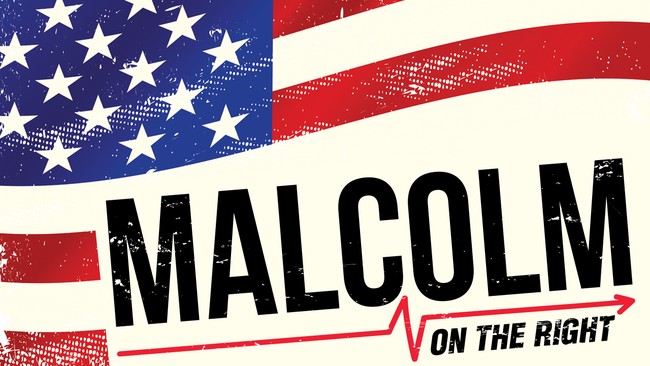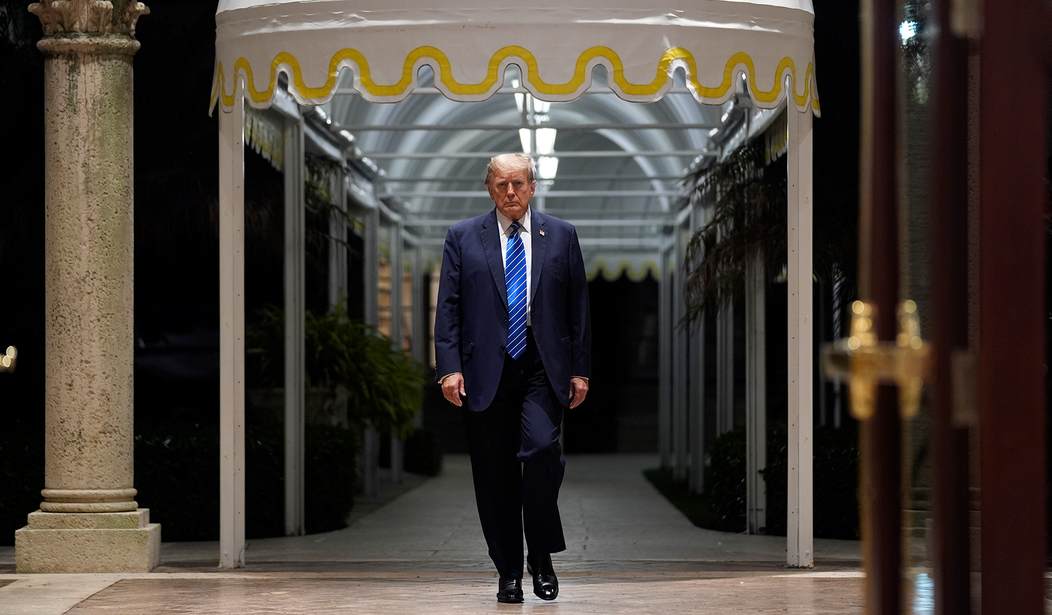One of the strengths that has enabled both major U.S. political parties to survive as two of the oldest still operating in the Western world is their ability to adjust political personalities over time to match the changing collective desires of voters.
Not rapidly like chameleons, more like the changing seasons. Until one day you notice, Things have changed.
Republicans who nominated, then elected Abraham Lincoln as the party’s first of 19 presidents so far, would not recognize the GOP of Teddy Roosevelt, nor the party of today.
The same goes for Democrats in the party that elected Andrew Jackson in 1828, John Kennedy in 1960, and Joe Biden 60 years later as that coalition’s 16th president.
The results of Super Tuesday in early March confirmed that the GOP is now the party of Donald Trump, who, despite major legal entanglements, is on track to become the Republican nominee again.
Nikki Haley, his last remaining opponent, suspended her 2024 campaign. More on her later.
It’s always risky for a party to put its life and policies in the hands of one person. Jimmy Carter's ineptness led to 12 years of GOP rule. Trump, however, is infinitely more clever, media-savvy, and ambitious. For today's divided Republican Party, Trump's takeover is also inevitable.
Of all 17 Republican candidates eight years ago, the Fifth Avenue billionaire and longtime Democrat donor was the only one to detect and run with the Heartland’s seething anger and frustration with the Washington Swamp.
His historic 2016 upset was skilled, stunning, and actually quite close, dependent on only around 70,000 votes in three key states that Hillary Clinton took for granted.
The combination of Trump’s political presence and an enduring appreciation for his economic, energy, judicial, and national security policies, in contrast to Joe Biden’s fecklessness, gives the former president a slight polling lead eight months out, though not as big a hypothetical lead as Haley.
RELATED: Americans Dislike Both Parties, but Really Like One's Policies
So, while pretty much everyone admits Trump’s path to the nomination in July is now virtually clear, serious concerns remain about November and his ability and willingness to save the nation from four more years of the comedy duo of Biden and Kamala Harris.
On paper, with both Democrats owning historically dismal job approvals worse than Trump's, a GOP win should be a slam dunk. Truth is, Biden and Trump are the best things going for each other – the threat of four more years of either man galvanizes the other’s base.
Trump does have strengths. A recent poll found 97 percent of Trump's 2020 voters still back him. For Joe Biden, it's only 83 percent, and another 10 percent have jumped to Trump.
The big unanswered question now is: Does Trump have the smarts and courage to do what it takes to win in November?
Fifteen months ago, we asked the question:
As you may have noticed these past (eight) years, Trump covets and cherishes attention, all the attention he can get, any way he can get it. Even if it damages his own goals….
Does Donald Trump really want to be president again?
We repeat the question now because not only is Trump not yet doing what he needs to do to unite a deeply split Republican Party that he needs to win come fall.
At times, he does the exact opposite, rubbing rhetorical salt in the wounds of the 29 percent of Republican primary voters who did not choose him. For a de facto incumbent president seeking a second term, that's an ominously large number.
Marc Thiessen spoke for many in his latest column, "I want to support Trump. He keeps making that harder for me."
Trump will also need independents and moderate Republicans who are rightly terrified of the Democrat duo that ignited the worst inflation in 40 years; that weakened the military with their Woke checklist; that acquiesced in and indeed facilitated the invasion of nearly 10 million illegal immigrants; and that cluelessly flaunts American weakness before an array of global adversaries eager to supplant a shaky superpower.

Republicans always require crossover help. Trump needs more than just his fervent political posse, much more.
Even when he won in 2016, Trump drew nearly three million fewer popular votes than Hillary Clinton. Trump's happened to come in just the right places for the Electoral College count. Clinton's support was overloaded in predictable Democrat strongholds like California.
As Haley suspended her primary challenge, Trump could have seized that unique moment to graciously accept her concession and invite Haley and her supporters to join in ousting the ominous duo of an addled 81-year-old and his empty accomplice who giggles.
Instead, it was Biden’s campaign enthusiastically inviting Haley voters to join it. Trump reveled on social media about how he “trounced” the fellow Republican and the woman he picked for his cabinet and later praised. He kept calling Haley “Birdbrain.” Name-calling got Trump rally cheers and massive free media coverage as a newcomer in the 2016 primaries, but over time, seemed more playground than presidential.
Belatedly, this weekend, at least in prepared remarks, Trump reached out: "To all Republicans, Independents, and disillusioned Democrats, I invite you to join our movement and help us save our country." He'll need more than a speech paragraph to earn that.
A poll analysis this month found that a fifth of Iowa's GOP voters, a third of New Hampshire voters, and a quarter of South Carolina voters said they will not vote for Trump in November.
Thiessen points out Trump lost in 2020 by a combined 42,919 votes in three key states.
Haley this cycle captured 2,878,491 votes, including numerous independents and Democrats. Drawing such crossovers is how Republicans Reagan, both Bushes, and Trump 1.0 won the White House.
Pride aside, that size of a crowd seems well worth courting.
It may sound cheesy, perhaps even phony, but this is the ritualized choreography of political unity. Public manners. Flashing some humility. Winning the big prize is infinitely more important than pride or cheap gloating.
Trump did so much positive for the country policy-wise in just four years. Many of us want that Trump back in the White House.
He asserted American might abroad without incurring new military entanglements. He lowered taxes. Created a job boom. Secured the Mexican border at least temporarily. He installed a conservative judiciary with Mitch McConnell’s crucial help. He crushed ISIS. Established energy independence. Drove the historic Middle East Abraham peace accord. Successfully pushed numerous NATO allies to boost defense spending.
The Republican Party belongs to Trump for now. Hopefully, he will lead it to new heights, not just preside enjoyably. Or wreak revenge as he threatened, then backed off.
At the latest, Trump will be gone in 2029 when he’s 82. If he loses in November, he’ll hang around a while, talking loudly but carrying a diminished stick. For better or worse, there’s no one else like him on the horizon. And media lets him play them like Hilary Hahn on the violin.
That’s the way our political system works and regenerates. There’s no one with Trump’s personal wattage to step up right now. Over time, new personalities will emerge from within both parties. I wager they will be much younger. And the GOP and Democrat Party will morph once more.
Whomever Trump picks as ticket partner will gain a heightened profile since he’s unlikely to pick a big name that competes for his spotlight. If Trump wins and has a successful administration, his VP would seem an heir apparent, as George H.W. Bush was after Ronald Reagan.
After recent presidential losses before the current plague of loyalty tests, the GOP has often leaned toward the already-vetted loser from the previous primary contests: Reagan in 1980, John McCain in 2008, Mitt Romney in 2012.
This time, for only the second time in history, the previous incumbent (Trump) returns for a rerun after a loss, as Democrat Grover Cleveland did successfully in 1892 to interrupt a long, post-Civil War Republican reign.
If Trump loses again, he's finished at 78, and the question becomes, can his hybrid brand of populism survive without him? I don't see any acolytes now with his political appeal. He wouldn't allow it. And they know it.
Trump supporters disdain the next generation of Republicans because they dared challenge The Man. But Nikki Haley, who’s 52, has said, “I’m not going anywhere.” As Politico pointed out, if Haley didn’t run until 2040, she’d still be younger than Trump at his inauguration. Younger leaders in DC would feel so refreshing, like Kennedy in 1960.
Gov. Ron DeSantis, who’s only 45 and a former member of Seal Team One, is term-limited after 2027. Oh, look! That’s the run-up time to the next presidential election.
The GOP likes governors as chief executives. Besides DeSantis, there are 26 others. Several are presiding quietly and successfully, focused on their immediate jobs and holding ambitions in check to see if Trump’s populism survives his exit, and for how long.
Joe Biden will be gone one way or another. And his owners, the Democrat left, will have to find an obedient someone else to thrust forward and cow.













